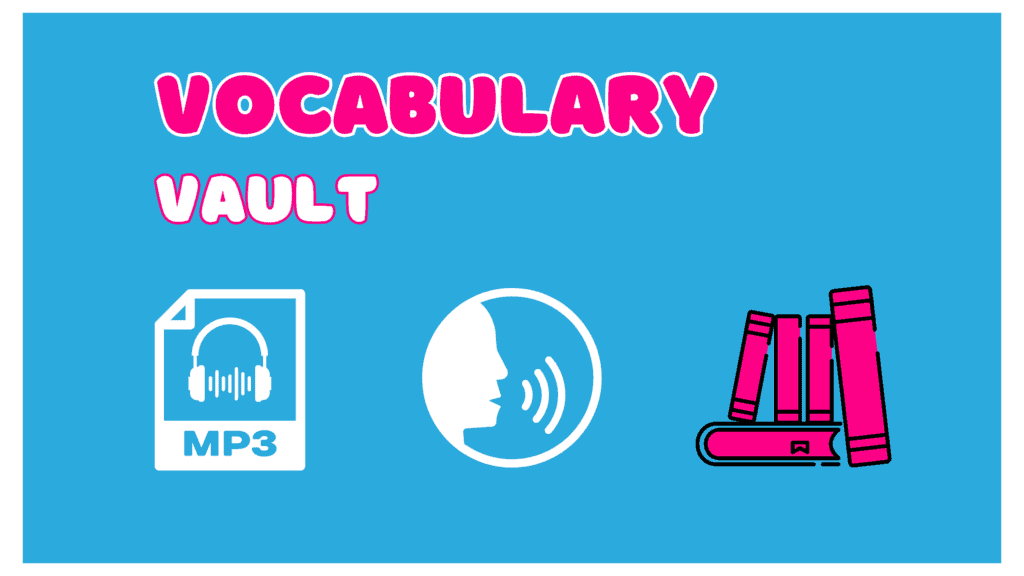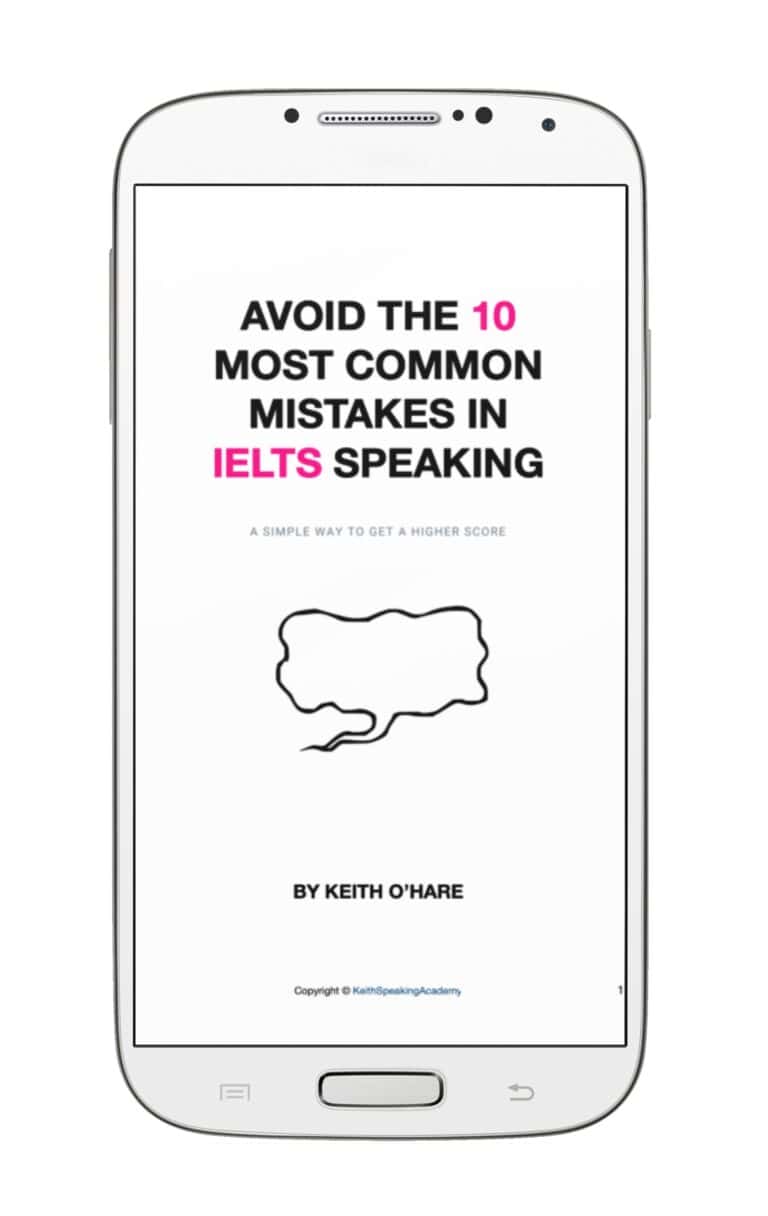IELTS Speaking Lesson about Computers
👇 Take this lesson with you! 👇
Table of Contents
IELTS Speaking Vocabulary: Computers
When we talk about using computers in IELTS Speaking here is some essential language to getting started.
To turn on
To switch on
To start up
To reboot = to turn on again
To re-start = to turn on again
To turn off your computer
To turn on sleep mode
We can use the following phrases to tell people what kind of computer we have.
- I have a Lenovo laptop
- I have a [brand / make] laptop / computer
- I’ve got a desktop
- I have a PC
- I have a MAC
- I tend to (=often/usually) use a tablet or a smartphone
Adjectives to describe computers
- A hefty laptop = big and heavy
- A clunky laptop = big and old fashioned
- A bulky desktop = takes up a lot of space
In contrast to the above adjectives, we have the following which are more positive.
- A slick tablet = thin, fashionable, nice-looking
- A lightweight laptop = not heavy
- A nifty laptop = small and fashionable
Activities
- Download and install new software
- Install the latest updates
- Download an application (an app)
- Upload a file
- To back up your computer (copy your data)
- To make a backup of files
- Turn on / off your firewall (to protect you from viruses)

Binomials:
A binomial is where we put two nouns together, separated with the word ‘and’.
For example,
Black and white
Neat and tidy
Notice the ‘and’ is pronounced /ən/
These are some common binomials related to computers.
Copy and paste
Cut and paste
Drag and drop
Uses of Computers
Most Common Mistakes
- “I use laptop for watch movies” ☹️
The mistake here is that we need the article ‘a’ before the noun.
Also if a preposition is followed by a verb, that verb needs to be a gerund, i.e. ending in ING.
So, the correct sentences are:
I use a laptop for watching movies
I use my laptop for watching movies
I use a laptop to watch movies
- “I have only smartphone” ☹️
The mistake here is that the adverb ‘only’ should go before the verb ‘have’ and again we need the article ‘a’ before the noun.
So, the correct sentences are:
I only have a smartphone
I’ve only got a smartphone
There are lots of ways of talking about how we use computers, including the following:
- I use my laptop to watch movies
OR
I make use of it to ____
do some research
follow the news
play games
check my Facebook status
OR
I use it for __+ verb ING___
I use it for watching movies
OR
It’s really handy for _____ (=convenient)
OR
It comes in handy for ______ (=to be convenient)
watching movies
coding
preparing presentations
surfing the Internet
shopping online
OR
I use /z/ it _+ noun____
for work
for work stuff
for business
for personal use /s/
for educational purposes
for almost everything

Challenges of using computers
Here are some ideas, phrases and language we can use to talk about the challenges of using computers.
- They do exactly what you tell them, not what you want them to do!
- They are so fragile and easy to break
- The battery can run out too quickly
- They often have compatibility issues, so I can’t share Mac Pages with a Windows computer.
- Insufficient storage space can be problematic
- Glitches can be a problem
_____ can be a problem
____ can be problematic
Idioms to talk about computers
- I feel brain dead = I can no longer focus
- I feel sluggish = I feel slow and without energy
- I need to get my brain in gear = to start focussing and concentrating
- I have just had a brainwave = a great idea
- Can you say it layman’s terms? = say it simply please!
- Cut out the jargon, please! = don’t use technical words!
- I like to surf the net = to browse the Internet
- I am not that tech savvy = I don’t know much about computers
- The internet connection is a bit hit and miss today = not very stable
Pronunciation Files For Vocabulary From My Best Live Lessons
Use Words EASILY in English Conversations!
More Free Lessons
If you liked this lesson, leave a comment below!
There are more lessons you can follow in the links below too.
CLOTHES in IELTS Speaking. Vocabulary you need to describe clothes you like and dislike, as well as formal and informal styles.
TECHNOLOGY in IELTS Speaking. How to talk about technology, the internet and artificial intelligence.
MOBILE PHONES in IELTS Speaking. Learn vocabulary of phones and ideas to talk about how we use phones in our lives.



I’m blissfully happy to find out resourseful vocab ! Thanks dear
Me too! Thanks for visiting and do come back soon.
I couldn’t find note pdf that related to computer and internet live lesson
It’s at the top of the page, just below the video.
Great content
Thank you for sharing
Sir there’s no pdf for computer internet and AI. There is only for computers. Please could you share the pdf file.
Thanks
Thanks, and I am afraid there is only one PDF for computers.
You were so eloquent today. i was a new come and participated as maiden watcher. You highlighted time befitting issues that were highly needed.
Pleased to hear that, thanks for attending the lesson!